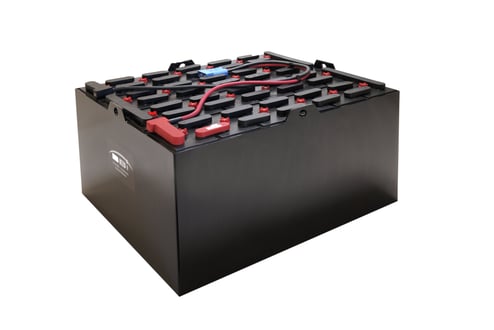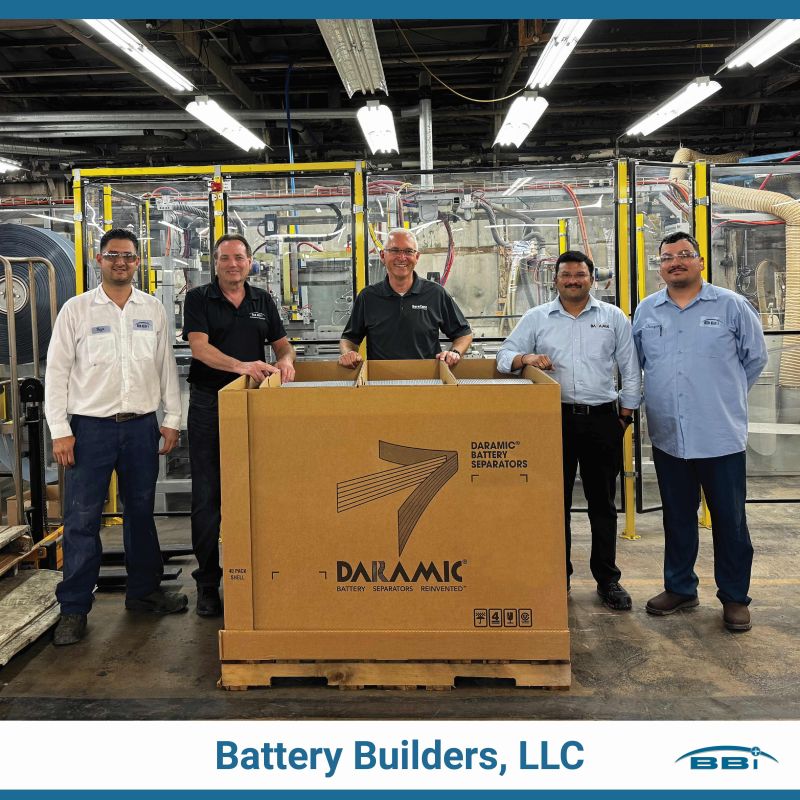
Forklift Batteries Selection Guide
Forklifts are the unsung heroes of warehouses and distribution centers, helping to move heavy loads with ease. However, the heart of any forklift is its battery. Choosing the right forklift battery can be a daunting task, especially with so many options available on the market. This Forklift Batteries Selection Guide aims to demystify the selection process, providing you with all the essential information to make informed decisions for your business.
Understanding Forklift Batteries
Before diving into how to select a forklift battery, it's crucial to understand what forklift batteries are and their types. Generally speaking, forklift batteries provide the necessary power to operate electric forklifts, enabling them to lift and transport goods efficiently.
Types of Forklift Batteries
There are primarily two types of batteries used in forklifts: lead-acid batteries and lithium-ion batteries.
Lead-Acid Batteries
Lead-acid batteries have been around for decades and are often considered the standard in many industries. Here’s what you need to know:
- Cost-Effective: Lead-acid batteries are generally cheaper upfront compared to lithium-ion alternatives.
- Proven Technology: Their long-standing presence in the market means that they have a proven track record.
- Weight: These batteries tend to be heavier, which can affect the overall weight capacity of your forklift.
However, lead-acid batteries do come with some downsides:
- Maintenance: They require regular maintenance, including watering and equalization charging.
- Charging Time: Lead-acid batteries typically take longer to charge fully.
Lithium-Ion Batteries
Lithium-ion technology has gained popularity in recent years due to its advanced features:
- Fast Charging: Lithium-ion batteries can charge quickly—often in less than two hours.
- Low Maintenance: These batteries usually require little to no maintenance, freeing up time for operators.
- Longer Lifespan: They generally last longer than lead-acid counterparts, offering better value over time.
Nevertheless, there are some considerations:
- Higher Initial Cost: The upfront cost is significantly higher than that of lead-acid batteries.
- Temperature Sensitivity: Lithium-ion batteries may not perform optimally in extreme temperatures.
In summary, understanding these types of forklift batteries is essential when selecting one that fits your needs.
Forklift Batteries Selection Guide for Your Business Needs
Choosing the right forklift 36 volt flat plate forklift batteries battery involves multiple factors that cater specifically to your operational requirements. To simplify this process, we will break down these factors into manageable sections.
1. Determine Your Power Requirements
What kind of power do you need? The answer lies largely in how you plan to use your forklift.

Daily Usage Patterns
Consider how many hours per day your forklifts will be operating. For example:
- If you're running operations continuously for several shifts (like in a busy warehouse), you'll likely need more robust power solutions like lithium-ion.
- In contrast, if your usage is limited or intermittent throughout the day (such as in smaller retail spaces), lead-acid could suffice.
Load Capacity
Different tasks require different load capacities. Ensure you calculate both:
- The average weight of items being lifted
- The maximum weight limit your forklifts will handle
This will help determine if a standard or heavy-duty battery is necessary.
2. Assess Charging Infrastructure
What does your charging setup look like? Understanding your current infrastructure can save headaches later on.
Charging Stations
Do you have dedicated charging stations? If so:
- Ensure they meet voltage requirements for either lead-acid or lithium-ion.
Battery Swapping
If you opt for lithium-ion due to fast-charging capabilities:
- Consider investing in additional backup batteries for quick swaps during peak times.
3. Evaluate Total Cost of Ownership (TCO)
When it comes down to it, what's going to cost you less over time?
| Battery Type | Initial Cost | Maintenance Cost | Lifespan | Total Estimated Cost | |------------------|--------------|-------------------|----------|----------------------| | Lead-Acid | Low | Medium | Short | Medium | | Lithium-Ion | High | Low | Long | Low |

While lead-acid might seem appealing initially due to lower costs, consider long-term expenses like maintenance and replacement frequency when evaluating TCO.
4. Environmental Considerations
Are sustainability concerns important for your business?
If yes:
- Opting for lithium-ion not only reduces maintenance but also minimizes environmental impact through lesser hazardous material disposal compared to lead-acid variants.
5. Manufacturer Reputation and Warranty
Who's making these batteries?
Look into well-established manufacturers who offer warranties:
- A good warranty indicates confidence in product durability,
- And strong customer support can help resolve issues quickly should they arise.
FAQ Section
Here’s where we tackle some common queries regarding forklift battery selection:
- It depends on your needs! For heavy usage requiring fast turnaround times, go with lithium-ion; otherwise, lead-acid may fit just fine if budget constraints exist.
- Lead-acid lasts about 3–5 years while lithium-ion can last up to a decade depending on use and care!
- No! Forklift applications demand specific designs; using automotive ones could cause damage or unsafe conditions.
- Regular checks every month should suffice—water levels must be checked frequently!
- Yes! However, modern designs incorporate cooling features minimizing risks considerably; follow manufacturer guidelines closely!
- Store them indoors at moderate temperatures away from direct sunlight—keep 'em charged at least partially!
Conclusion
Navigating through the world of forklift battery selection doesn't have to feel overwhelming anymore! By breaking down complex concepts into digestible pieces while considering operational needs alongside environmental impacts & total ownership costs – you're well on your way toward making informed choices that will benefit both productivity & longevity within operations!
So remember this Forklift Batteries Selection Guide whenever you're faced with choosing between multiple options—it'll serve as an invaluable resource that keeps both efficiency AND profitability 48 volt flat plate forklift batteries at its core!
